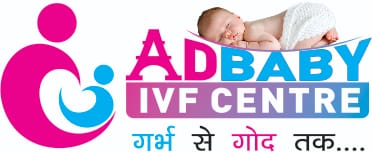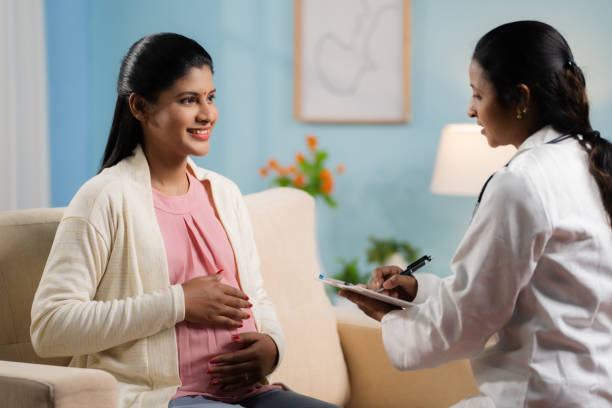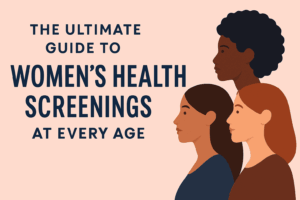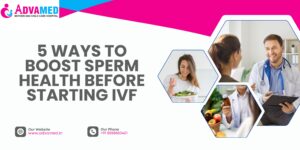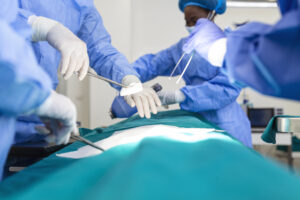Many women are excited and have questions when they decide to start or grow a family after the age of 35. It’s normal to be curious about fertility, possible risks, and the potential benefits of cutting-edge medical treatments. There are many myths about fertility after the age of 35, but there are also some biological realities to be considered. Women now have more options than ever before, thanks to advanced reproductive technologies and professional care.
The Reality of Fertility After 35
The quantity and quality of a woman’s eggs, or her ovarian reserve, naturally decrease with age. The likelihood of getting pregnant each month is lower at age 35 than it is at younger ages. Here are a few crucial elements:
Decline in Egg Quality: Chromosome abnormalities may be more likely to occur in older eggs, which could lower fertility and increase the risk of miscarriage.
Ovulation Changes: It can be challenging to identify fertile windows in women over 35 who have irregular ovulation.
Increased Pregnancy Risks: A higher risk of complications such as preterm birth, hypertension, and gestational diabetes.
Male Factor: Although age-related declines in fertility are also experienced by men, they are typically less severe.
Despite these challenges, many women over 35 conceive naturally or with medical support.
Common Myths About Fertility After 35
Unfortunately, misinformation often creates unnecessary fear. Let’s debunk a few myths:
- Myth 1: “Getting pregnant after 35 is impossible.”
Truth: Many women conceive naturally after 35. However, it may take longer, and medical assistance can improve chances. - Myth 2: “IVF is the only option.”
Truth: IVF is powerful, but not always the first step. Treatments such as ovulation induction, intrauterine insemination (IUI), or lifestyle changes may be recommended first. - Myth 3: “Pregnancy after 35 always leads to complications.”
Truth: With proper monitoring and care from specialists like Dr. Nupur Sharma, many women have healthy pregnancies well into their late 30s and 40s.
Modern Fertility Treatment Options
Thanks to advancements in reproductive medicine, women over 35 have multiple options to enhance fertility and increase pregnancy success rates.
1. Ovulation Induction & Monitoring
Medications increase the likelihood of conception by inducing ovulation. This is frequently the initial stage of fertility treatment when paired with close observation.
2. Intrauterine Insemination (IUI)
This minimally invasive technique increases the likelihood of fertilisation by directly introducing prepared sperm into the uterus during ovulation.
3. In Vitro Fertilization (IVF)
One of the best methods for treating age-related infertility is IVF. The process involves retrieving eggs, fertilising them in a laboratory, and then transferring the embryos to the uterus. Success rates are further increased by sophisticated procedures like blastocyst transfer and ICSI (Intracytoplasmic Sperm Injection).
4. Egg Freezing & Donor Eggs
Egg freezing maintains fertility for women who want to put off having children. Donor eggs are a great choice when ovarian reserve is reduced.
5. Genetic Testing (PGT)
Before implantation, Genetic testing lowers the risk of miscarriage and genetic disorders by ensuring that only healthy embryos are transferred during IVF.
At Advamed, these advanced treatments are supported by state-of-the-art technology and compassionate care.
Role of Dr. Nupur Sharma in Supporting Women Over 35
The director of Advamed, Dr. Nupur Sharma, is a reputable IVF and gynaecology specialist in Zirakpur with years of experience assisting women with infertility issues. Performing a thorough evaluation of ovarian reserve, hormonal balance, and general health are among her responsibilities.
- Conducting a detailed assessment of ovarian reserve, hormonal balance, and overall health.
- Designing personalized fertility plans tailored to age and individual conditions.
- Offering advanced fertility treatments such as IVF, IUI, and egg freezing.
- Providing holistic support, including counselling, nutrition guidance, and pregnancy care.
- Monitoring both mother and baby closely to ensure safe outcomes.
Her patient-first approach has helped countless women achieve their dream of motherhood—even after 35.
Why Choose Advamed for Fertility After 35?
Experience and technology are important factors in reproductive health and fertility. Patients at Advamed Hospital & Adbaby IVF Centre enjoy the following advantages: Modern IVF lab and equipment
- Comprehensive services for full mother and child support, such as antenatal and prenatal care and neonatal intensive care unit
- A committed group with experience in managing high-risk pregnancies and fertility treatments, headed by Dr. Nupur Sharma
- Patient-centered, compassionate treatment aimed at promoting a healthy childhood and safe motherhood
Tips to Improve Fertility After 35 Naturally
While medical support is often needed, lifestyle changes can also play a role in improving fertility:
- Maintain a healthy weight and a balanced diet rich in antioxidants
- Avoid smoking, excessive alcohol, and caffeine
- Manage stress with yoga, meditation, or light exercise
- Track ovulation cycles carefully
- Schedule regular check-ups with a fertility specialist
These steps, combined with medical expertise, give women the best chance of a healthy pregnancy.
Final Thoughts
Although there are particular difficulties, becoming fertile after the age of 35 is not impossible. Many women can conceive and give birth to healthy children with the correct information, contemporary treatment options, and professional guidance.
For women over 35, Advamed offers advanced fertility care from Dr. Nupur Sharma, an IVF & Gynaecology Specialist in Zirakpur. You can find individualised solutions and caring support here, regardless of whether you are just beginning your journey or are exploring more advanced options like IVF.
It is possible to become a mother after the age of 35, and with the correct support, the experience can be happy, safe, and rewarding.

